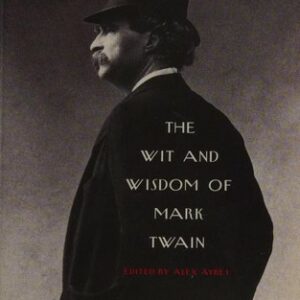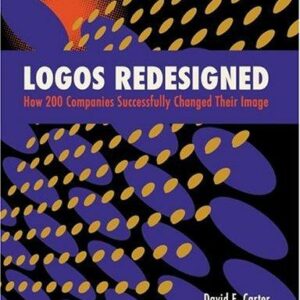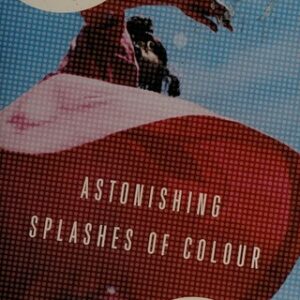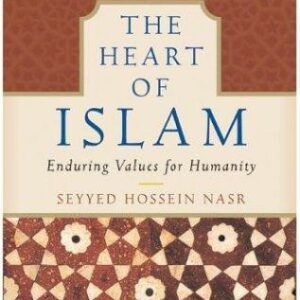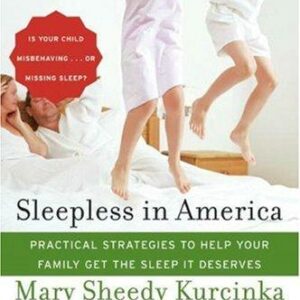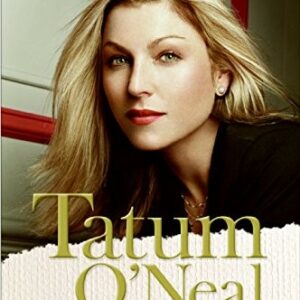Tangled Up in Blue
$18.00
| Title | Range | Discount |
|---|---|---|
| Trade Discount | 5 + | 25% |
- Description
- Additional information
Description
Named one of the best nonfiction books of the year by The Washington Post
“Tangled Up in Blue is a wonderfully insightful book that provides a lens to critically analyze urban policing and a road map for how our most dispossessed citizens may better relate to those sworn to protect and serve.” —The Washington Post
“Remarkable . . . Brooks has produced an engaging page-turner that also outlines many broadly applicable lessons and sensible policy reforms.” —Foreign Affairs
Journalist and law professor Rosa Brooks goes beyond the “blue wall of silence” in this radical inside examination of American policing
In her forties, with two children, a spouse, a dog, a mortgage, and a full-time job as a tenured law professor at Georgetown University, Rosa Brooks decided to become a cop. A liberal academic and journalist with an enduring interest in law’s troubled relationship with violence, Brooks wanted the kind of insider experience that would help her understand how police officers make sense of their world—and whether that world can be changed. In 2015, against the advice of everyone she knew, she applied to become a sworn, armed reserve police officer with the Washington, DC, Metropolitan Police Department.
Then as now, police violence was constantly in the news. The Black Lives Matter movement was gaining momentum, protests wracked America’s cities, and each day brought more stories of cruel, corrupt cops, police violence, and the racial disparities that mar our criminal justice system. Lines were being drawn, and people were taking sides. But as Brooks made her way through the police academy and began work as a patrol officer in the poorest, most crime-ridden neighborhoods of the nation’s capital, she found a reality far more complex than the headlines suggested.
In Tangled Up in Blue, Brooks recounts her experiences inside the usually closed world of policing. From street shootings and domestic violence calls to the behind-the-scenes police work during Donald Trump’s 2016 presidential inauguration, Brooks presents a revelatory account of what it’s like inside the “blue wall of silence.” She issues an urgent call for new laws and institutions, and argues that in a nation increasingly divided by race, class, ethnicity, geography, and ideology, a truly transformative approach to policing requires us to move beyond sound bites, slogans, and stereotypes. An explosive and groundbreaking investigation, Tangled Up in Blue complicates matters rather than simplifies them, and gives pause both to those who think police can do no wrong—and those who think they can do no right.“Brooks has an anthropologist’s ear for the language of policing, jumping from the reports full of passive-voice bureaucratese to the darkly humorous, profanity-laden shoptalk. She zips from hilarious descriptions . . . to bone-dry observations. . . . [Brooks’s] style recalls the work of immersion journalists like George Plimpton, Ted Conover and Barbara Ehrenreich—who happens to be Brooks’s mother. Brooks makes this part of the story, nesting in a book on policing a beautifully written mini-memoir about growing up the daughter of a famous activist and writer, who disdains the police but also values a certain toughness.” —New York Times Book Review
“Tangled Up in Blue is a wonderfully insightful book that provides a lens to critically analyze urban policing and a road map for how our most dispossessed citizens may better relate to those sworn to protect and serve.” —The Washington Post
“Rosa Brooks’s Tangled Up in Blue: Policing the American City promises without question to be the cop memoir for the late 2010s and early 2020s. An accomplished scholar, journalist, and author who has moved in the loftiest legal, nonprofit, and foreign policy circles, Brooks brings a distinctive perspective to the police memoir genre, which boasts few women’s voices to begin with . . . But Brooks’s book is also about more than just policing as an institution, or even her own experiences as a cop: It is a deeply personal family memoir, and a meditation on questions of race, class, gender, and family inheritances.” —New Republic
“Remarkable . . . Brooks has produced an engaging page-turner that also outlines many broadly applicable lessons and sensible policy reforms.” —Foreign Affairs
“Through evocative storytelling coupled with research and analysis. . . Brooks discusses the complex intersections of race and socioeconomic status in interactions between civilians and police while highlighting the often blunt enforcement of laws. A thoughtful, piercing read, Tangled Up in Blue creates nuanced portrayals of her fellow officers, the members of the community they served, and the people affected by the criminal justice system in the United States.” —Booklist
“Delivers a nuanced and revealing chronicle of her experiences training to be a reserve police officer in Washington, D.C. . . . [Brooks] vividly sketches her patrol partners and the D.C. residents they encounter, and highlights problems caused by mass incarceration, racial discrimination, and lawmakers turning ‘trivial forms of misbehavior’ into jailable offenses. . . . This immersive, illuminating, and timely account takes a meaningful step toward bridging the gap between what American society asks of police and what they’re trained to deliver.” —Publishers Weekly (starred review)
“A thoughtful book that offers abundant material to rile up—and edify—Blue Lives Matter and Defund the Police advocates alike.” —Kirkus
“Drawing from years of monthly twenty-four-hour duty—and immersion journalism—Brooks guides us past two barbed-wire-encircled arguments (‘the police are racist and unnecessary’ and ‘get rid of a few bad apples and all’s fine’) to a radically better way of staying safe. A brilliant, important, timely book and gobble-up read.” —Arlie Russell Hochschild, author of Strangers in Their Own Land: Anger and Mourning on the American Right
“Tangled Up in Blue is a tour de police force that is disconcerting, elegiac, and mad funny, frequently all on the same page. With wicked intelligence, sparkling writing, and boundless empathy, Rosa Brooks tells cop stories out of school that will inspire and enrage everyone from woke activists to the ‘blue lives matter’ crew. Nine-one-one to my fellow citizens—proceed to read this book immediately.” —Paul Butler, author of Chokehold: Policing Black Men
“At significant personal and professional risk, Rosa Brooks put herself ‘at the edge of inside’ to see and feel the perspective of a cop on the street, without losing her academic and professional understanding of the constitutional role of policing in a democratic society. The stories lay bare the imperfect, and sometimes touching humanity of front-line officers and the despair of the people who are trapped in a cycle of poverty, poor decisions, and a criminal justice system designed for everything but justice. Her generous candor in sharing her personal story resonated deeply with my own personal experience as a daughter, sister, wife, and mother trying to navigate a profession that isn’t always welcoming to women, especially women with strong ideas about challenging the status quo.” —Sue Rahr, executive director of the Washington State Criminal Justice Training Commission, executive fellow at the National Police Foundation, and former sheriff of King County, WA
“I challenge you to find another book about policing that is more objective. Brooks comes across neither as pro-police nor anti-police—a feat all the more impressive and important in our polarized country. Brooks brings you into the station house and out to the streets, showing how policing is both far more mundane, and far more profound, than it appears in ‘reality’ cop shows. Her perspective is fresh and nuanced, illuminating aspects of policing I’d never before considered (and I’ve been considering policing for over two decades).” —Christy Lopez, former deputy chief in the Special Litigation Section of the Civil Rights Division at the U.S. Department of Justice and primary drafter of the Ferguson Report
“It’s so rare for such a smart, thoughtful person to put on a police uniform, patrol America’s streets, and relate what it feels like with insight and authenticity. Getting American policing right requires understanding how it’s experienced, and Rosa Brooks brings readers as close as they can get without taking the oath themselves.” —Brandon del Pozo, chief of police (ret.), Burlington, VT, and former New York City police officer
“Some books are timely; Some are timeless. With Rosa Brook’s ability to place her first-hand experiences with the challenges local police & their neighbors face into a larger context of troubled policing history, Tangled Up in Blue just might be both.” —Patrick Skinner, officer with the Savannah Police Department, and former CIA operations officerRosa Brooks is a law professor at Georgetown University and founder of Georgetown’s Innovative Policing Program. From 2016 to 2020, she served as a reserve police officer with the Washington, DC, Metropolitan Police Department. She has worked previously at the Defense Department, the State Department, and for several international human rights organizations. Her articles and essays have appeared in The New York Times, The Washington Post, The Atlantic, and The Wall Street Journal, and she spent four years as a weekly opinion columnist for the Los Angeles Times and another four as a columnist for Foreign Policy. Her most recent book, How Everything Became War and the Military Became Everything, was a New York Times Notable Book of 2016; it was also shortlisted for the Lionel Gelber Prize and named one of the five best books of the year by the Council on Foreign Relations.
Everyone You Meet
Assault with a Dangerous Weapon (knife)—Complainant advised that Suspect came knocking on his door looking for his girlfriend to fight her. Complainant stated that when he did not let Suspect in she pulled out a knife and stated “I’ll cut you.” At which time Suspect cut Complainant on the right side of his chest. Causing a severe laceration. Complainant [was] transported to [the] hospital for treatment. Suspect would not advise [police] what happened she just stated “yall didn’t help me I hate the police.” —MPD Joint Strategic and Tactical Analysis Command Center, Daily Report
Everyone you meet here would be happy to kill you,” Murphy told me.
His eyes were scanning out the window as he drove, and he was punching keys on the patrol car’s mobile computer with his right hand while he maneuvered the steering wheel with his left. Cop multitasking. “That’s what you have to remember. These people hate you. They would dance around your dead body.”
It was my first night as a patrol officer, and Murphy was showing me the ropes. We were driving down Martin Luther King Jr. Avenue in Washington, DC’s Seventh Police District. Sandwiched between the Anacostia River to the west and the Maryland state line to the east, “7D” is the poorest, saddest, most crime-ridden part of the nation’s capital. Gunshots are a common sound, and 7D regularly produces the lion’s share of DC homicides.
Still. “Everyone? You think even the little old ladies here want to kill me?” I asked.
Murphy gave me a tight smile. “All right, almost everyone. But you have to watch out for some of these old ladies. I’m telling you, people here are different from you and me. You and me, we don’t want to get in trouble or get hurt or go to jail. Like, it would be a big deal to us. These people? They’re so used to it, they just don’t care.”
We drove past a group of men with hoodies drawn up over their heads, hands in pockets. Murphy gave them a long, hard look, but their expressions remained scrupulously blank as our patrol car cruised by.
“See that guy?” Murphy asked, pointing to a gaunt man in a dirty Redskins sweatshirt. “That guy, I must have picked him up five times for one thing or another. You know, stupid shit. He hits his girlfriend. He steals a candy bar from the 7-Eleven. He’s fighting with some other asshole. He’s selling K2 in front of the fucking middle school. Then he gets fucking shot, like, a month ago. I’m first on the scene, he’s lying there bleeding and I’m saying to him, ‘Man, who did this to you? Help me get him.’ And he’s like, ‘Oh, I think it must have just been an accident.’ He’s lying there bleeding, but he wouldn’t fucking tell me anything. He almost died. Now he’s back at the same corner with the same assholes. You want to explain that to me?”
He shook his head. “These fucking people.”
In my forties, with two children, a spouse, a dog, a mortgage, and a full-time job as a tenured law professor, I decided to become a cop.
I could give you any number of plausible-sounding reasons for this. I’m an academic with a long-standing interest in law’s troubled relationship with violence and thought that learning about policing firsthand would lead to new scholarly insights. I had just finished writing a book about the changing role of the US military, and believed that becoming a police officer would allow me to better understand the blurring lines between war fighting and policing. I was dismayed by the statistics on police shootings and by the racial disparities in the criminal justice system, and wanted the insider experience that would enable me to become a credible and effective advocate for change. I was a onetime anthropology student, and considered participant observation the best way to understand cultures that might otherwise appear alien and incomprehensible.
All these were perfectly worthy and legitimate reasons for embarking on an otherwise unusual experiment, and they make decent retroactive justifications. But I had other, less noble impulses as well. I was restless, and not quite ready to subside into tenured comfort. I wanted something different and challenging, something nothing at all like a faculty meeting. I had probably read too much crime fiction.
I wasn’t completely mad. I didn’t quit my day job. Instead, I applied to become a reserve police officer with the Washington, DC, Metropolitan Police Department (MPD).
Many cities have unarmed volunteer auxiliary police, but the District of Columbia is one of the few major US cities in which unpaid reserve officers operate as sworn, armed police officers with full arrest powers. As a reserve police officer in Washington, DC, I would go through the same police academy training as the city’s thirty-eight hundred full-time career officers, take the same oath, wear the same uniform and badge, carry the same gun, and patrol the same streets-but as a volunteer, I would be required to offer the city only twenty-four hours of patrolling each month.
Twenty-four hours a month didn’t seem like much. Nonetheless, no one I knew thought this was a good idea.
“You’re insane,” my husband told me. When I applied to the Metropolitan Police Reserve Corps, Joe was in the process of winding down his own career as a US Army Special Forces officer. After more than two decades in the military, he said he was sure of just two things: he never wanted to wear a uniform again, and he never wanted to have to call anyone “sir” again. My sudden interest in policing, a profession that required both the wearing of uniforms and the acceptance of a paramilitary command structure, struck him as inexplicable.
My mother was similarly unenthusiastic. A writer and left-wing activist best known for her own forays into immersion journalism, her memories of being tear-gassed by police at 1960s anti-war marches remained fresh. “The police are the enemy,” she informed me. “They are not on our side.”
She wasn’t the only one who felt that way. Then as now, police violence was constantly in the news. When I applied to the DC police reserve corps in 2015, students at Georgetown Law, where I taught courses on international law, human rights, and constitutional law, were coming to class wearing T-shirts that read “Stop Police Terror.”
“The police are killing black people,” one of my African American faculty colleagues told me. “I can’t even talk about it right now. I just can’t.”
My father listened as I stumbled through my convoluted justifications, then shook his head.
“Well, you sure do come up with interesting ideas.”
I Don’t Even Live Here
Homicide (gun): MPD received a radio assignment for an unconscious person at [redacted]. Upon officers’ arrival, Victim 1 and Victim 2 were located inside the aforementioned location in an unconscious and unresponsive state suffering from apparent gunshot wounds to their heads. [Medics] responded to the location. Death was apparent and no further action was taken. —MPD Joint Strategic and Tactical Analysis Command Center, Daily Report
No one tried to kill me during my first patrol shift. For that matter, no one tried to kill anyone that night-at least not on any of my calls. Statistics say that somewhere in the dark streets of the nation’s capital, someone was hurting someone else, but they weren’t doing it in front of me.
Instead, Murphy and I were dispatched to a series of what seemed like fairly minor problems. There were teenage boys standing on the sidewalk, “talking shit” to girls who walked by; Murphy told them to take a hike. They complained: “Aw, shit, man, the fucking po-lice, why you gotta come mess with us for no reason? What the fuck, man!” But eventually, they took a hike.
We responded to a call for a disturbance in an apartment block: an elderly resident, fed up with the smell of marijuana in the communal stairwell, decided to use pepper spray as an air freshener, which did not endear him to his neighbors. Murphy suggested that everyone stay out of the stairwell for a while, and urged the guy with the pepper spray to invest in a can of Febreze instead.
Later, we were sent to keep the peace while an inebriated man with blood all over his shirtfront removed his possessions from the home of his equally inebriated about-to-be-ex-girlfriend, who helped the process along by throwing most of his clothes out the window. Both parties declined to explain or even acknowledge the blood, but every few minutes, the two would lunge at each other, and we would drag them apart, Murphy yanking on the boyfriend’s arm, me yanking on the girlfriend’s arm, hauling them off in opposite directions.
“Come on, come on,” we told them, over and over. “You hit each other, you both end up in jail for the night; it’s not worth it!”
Judging from the cursing and spitting, both thought it might very well be worth it, but we stayed between them, and they had to be satisfied with snarls and the occasional string of insults. Eventually, the disgruntled boyfriend and three trash bags full of his clothing were picked up by a plump young woman in a battered Nissan. After a few valedictory cries of “Fucking skank!” and “I see you again, you be sorry!” the Nissan squealed away, the girlfriend slammed her door on us, and the evening grew peaceful once more.
By my second or third patrol shift, after a few calls for minor disturbances followed by several hours of radio silence, I was feeling relaxed enough to break a taboo.
“It’s really quiet tonight,” I told Murphy.
“Don’t say that!” He was dismayed. “Never say that!”
Sure enough, the radio soon erupted into staticky clamor. “All units, priority, all units . . . Multiple shots fired, Code One.” Code 1 meant “Get there fast.” Murphy had the lights and siren on even before the dispatcher finished giving the address, and we tore down the busy streets. I flinched as we narrowly avoided a head-on-collision. We screamed up to the scene along with every other police car in 7D.
By the time Murphy and I jumped out of the car, another officer was already stringing yellow crime scene tape across the road. Unlike us, she seemed to be in no rush.
“So what’s happening?” Murphy asked the officer with the tape.
She gestured casually over her shoulder. “Couple guys with gunshot wounds.”
We ducked under the tape and headed toward the center of the action. A man lay on the street in a spreading pool of blood, an ambulance pulling up alongside him. Another man, his arm bloody, was pacing up and down, muttering angrily; an officer was trying to coax him into letting the medics take a look at him, but he just kept pacing and tossing his head back and forth, as if trying to shake off a bothersome insect. On the sidewalk, a young woman sat with her back against a tree, staring at us blankly. She was covered with blood too.
“Hey,” someone said. It was another patrol officer. “I just talked to the detectives and they want someone to take a witness over to the station. You guys free to help with that?”
The witness, it turned out, was the blood-covered woman, and the blood wasn’t hers; it all belonged to the guy lying in the street.
She seemed shell-shocked as we loaded her gently into the backseat of the scout car. “I don’t even live here, you know?” she kept saying. “Trey and me, we was just hanging out, and suddenly, there’s blood all over. I didn’t hear no gunshots. Just, blood all over, all of a sudden. I don’t even live here.” In the close confines of the car, the faint smell of marijuana wafting off her clothes vied with the iron odor of blood.
Back at 7D, we led our witness into the detectives’ room and sat her down on a bench. Blood still dripped from her pants leg, and Murphy brought her some paper towels. I dug around in my pockets for some disinfectant wipes and offered them to her. She made a feeble effort to clean her legs, but there was too much blood. She needed a washing machine, not a paper towel and some wet wipes. After a few moments she gave up and sat with her eyes closed, her head leaned back against the wall.
“Should I offer her some coffee, or a Coke, or something?” I whispered to Murphy. I wasn’t sure of the protocol for handling witnesses to violent crimes. Was she a victim? A suspect? Both?
“Nah,” he said. “Let the detectives decide.”
The detective, an impatient young white guy with a soft chin and male pattern baldness, showed up a few minutes later, muttering to himself about being pulled away from his other work to deal with the shooting. He didn’t offer the witness anything, either.
“Thanks for bringing her over,” he told us. “We’re short tonight. You wanna watch the interview, feel free; you can watch on the monitor over there.”
He ushered the witness into a small interview room, and Murphy and I settled ourselves in to watch.
The interview didn’t last long.
“Okay,” the detective said, “You’re not a suspect. You understand? I just want to find out what happened, okay, then you can go.”
“I don’t even live here,” the young woman informed him. “Like I said, we was just hanging out, and then there’s blood all over. I don’t have any idea how it happened.”
I nodded. I still thought someone should offer her a soda.
“Bullshit!” declared the detective, slamming his fist down on the table. The witness and I both jumped.
“You know that’s bullshit. You know exactly who did this.”
“No, I don’t,” the witness said sulkily. She glared at him.
“Yes you do,” the detective insisted. “And if you don’t feel like telling me the truth, you can just leave.”
“Fine,” said the witness. She picked up her bloodstained purse and stood up, and that was that. Murphy and I drove her back to her car. She didn’t say another word.
A little later, we were sent off to the hospital to guard one of the shooting victims, just in case the shooter decided to return and finish the job. A doctor was in with him, and all we could hear from our station in the hallway was an occasional inquisitive murmur from the doctor, and the shooting victim’s intermittent yelps.
“Ow! Fuck! Ow!”
“He’ll live,” the doctor said when he came out. “He has about seven holes in his leg and his butt, though.”
Still later, another detective appeared to interview the victim, who refused to say anything to him beyond “Shit, man, my fucking ass hurts, okay?”
“You believe this shit?” the detective asked us.
That sounded like a rhetorical question, so I didn’t answer. I looked at Murphy.
He gave a lopsided smile. “You can’t make this shit up.”
US
Additional information
| Weight | 11.6 oz |
|---|---|
| Dimensions | 0.7800 × 5.4800 × 8.2300 in |
| Imprint | |
| ISBN-13 | |
| Author | |
| Audience | |
| BISAC | |
| Subjects | criminal justice, crime books, autobiographies, policing, political books, law enforcement, memoir books, biographies of famous people, sociology books, biographies and memoirs, memoirs, true crime books, SOC004000, criminal psychology, fbi books, criminology books, defund the police, criminology, police and race, end of policing, serial killers, crime, true crime, BIO026000, psychology, biography, Memoir, human behavior, law, Sociology, police, prison, FBI, serial killer, psychology books, George Floyd, white house, blue, biographies, 12 |
| Format |


